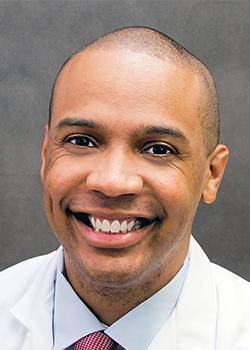What was the Main Goal of the American Board of Anesthesiology-Accredited, Month-Long Global Health Residency Rotation in Ghana?

Q: What was the main goal of the American Board of Anesthesiology-accredited, month-long global health residency rotation in Ghana?
A: The goal of the trip to Ghana was to create a project that could show an incremental measurable gain in the delivery of health care. We arrived in Accra, Ghana at a very interesting time. We were working at Ridge Regional Hospital and there were three separate groups of trainees: first-year nursing anesthesia students, certified anesthetist (nurses) doing continuing medical educations (CME), and house officers who were doing a six-month anesthesia rotation.
It became apparent that there was huge deficit in people who would be qualified to lecture at the nurse anesthesia school associated with Ridge Regional Hospital. My project included providing required lectures to the house officers. Given their initial lack of excitement, I decided to pitch the idea to them of ‘flipping the classroom.’ Each day, a separate house officer would take one of the topics and give a 20-30 minute lecture on the topic. After the lectures, I would fill in the gaps for each topic. The house officers were immediately engaged and in a short time it became easy to see their excitement for the field of anesthesiology.
During the month, we were also charged with providing basic life support training for all trainees. The team provided this training for the SRNAs (40), certified anesthetists (30), and the house officers (7). During this time, I was able to locate the only working defibrillator in the hospital. There was a code earlier in the month and no one associated knew where the defibrillator was located.
This was also a month of growth. I participated in my first intraoperative code. The patient was a mother who was referred from an outside hospital due to sickle cell crisis (Hgb of 4 mg/dl) and fetal distress. The mother was rushed to the operating room but coded shortly after induction. Intraoperative ECG is not commonly used due to lack of disposable stickers and working cables. The patient did have a working pulse oximeter which allowed us to track oxygenation and was helpful for determining return of spontaneous circulation (ROSC). Without getting into the clinical specifics of the case, there was no access to non-invasive blood pressure, no stat labs, no defibrillator, no ECG, no intraoperative fetal monitoring, and no functioning post procedure ICU care.
After work, there were opportunities to debrief and see Ghana. We were invited to meet with a group of Americans living in Ghana, many of whom were just granted dual citizenship. Adam Flowe, Derrick King, and Kent Smith joined us for the last week of the mission trip. They helped with teaching and providing many valuable supplies. Kent was able to tour the hospital with the technical support staff and provide insight about ways to improve efficiency.
Overall the trip was a great success. I have grown so much as a global citizen, a human, and a physician. It is safe to say that quality anesthesia care is one of the largest health care disparities in Africa. Dr. Adeyemi Olufolabi (Duke) and Dr. Medge Owen (Wake Forest) are literally saving the lives of women and children around the world. Their work has forever changed Ghana.
